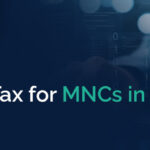The interplay between corporate tax regulations and private pension funds (PPFs) presents a distinctive challenge and opportunity. As organizations strategically plan for the future, the intersection of corporate taxation and private pension funds becomes a pivotal point. In this blog, we untangle the complexities of corporate tax for private pension funds in the UAE. We will understand the regulatory landscape to explore how a private pension fund gets an exemption from corporate tax (CT). In addition to the tax law, Ministerial Decision No. 115 of 2023 provides a detailed insight into the legal requirements for PFF to become exempt from CT. Join us as we dissect the key components and offer insights into private pension fund management in the UAE.
What is a Pension Plan?
The tax law defines a pension plan as:
“A contract having an explicit objective of providing benefits upon a defined retirement age in the state, before which the benefits cannot be paid without incurring a significant contractual penalty. It may also provide benefits in cases of disability and death.”
This precisely designed contractual agreement has the primary objective of delivering benefits explicitly upon reaching a specified retirement age within the state. It is crucial to underline that the disbursement of benefits is subject to rigid conditionality. Therefore, any attempt to access these benefits before the designated retirement age triggers a substantial contractual penalty. Furthermore, the scope of the pension plan extends beyond retirement planning. In cases of disability, the pension fund entitles covered individuals to benefits offering a crucial financial lifeline during times of unexpected health challenges. Additionally, the contract acknowledges the inevitability of mortality, providing financial support to beneficiaries in the event of the participant’s death.
Corporate Tax for Private Pension Funds
A private pension fund has the opportunity to seek an exemption from corporate tax by satisfying the following conditions upon application to the Authority:
- The fund must consist of a pool of assets that are legally or contractually designated as pension plan assets. Alternatively, the acquisition of these assets should be funded by contributions to a pension plan, exclusively allocated for financing pension plan benefits.
- The fund must confer upon pension plan members or beneficiaries a specific right, contractual claim, or entitlement against its assets or earnings.
- The fund should exclusively derive its income from sources specified in Article 4 of Ministerial Decision No. 115 of 2023. The details are provided in the next section.
- The fund must have a duly appointed independent auditor to ensure adherence to financial regulations.
Income from a Private Pension Fund
To claim exemption from corporate tax, a PPF must earn its income from any of the following:
- Investments or deposits, provided these financial instruments are held specifically to fulfill the fund’s obligations. Importantly, these investments must not constitute a business operation of the fund.
- Underwriting commissions are levied for the fund’s purposes.
- Rebates of charges, whether due or paid, by the fund to individuals involved in managing part or all of the fund’s assets. Significantly, these rebates should not be considered compensation for services rendered by the fund.
- Any additional income derived in strict accordance with a defined investment policy aimed at benefiting pension plan members or beneficiaries of the End of Service Benefit (EOSB), as applicable.
Contributions to a Private Pension Fund
An employer, classified as a taxable person, is entitled to deduct the entire value of contributions made to a PPF on behalf of its employees who qualify as pension plan members. This deduction is applicable during the tax period in which the employer disburses these contributions. However, there is a limit on the deductible value of the contributions. The deduction for each pension plan member cannot exceed 15% of the total remuneration attributable to that member, which is eligible for deduction purposes in corporate tax calculations for the relevant tax period.
Conclusion:
In conclusion, the intersection of corporate tax regulations and private pension funds is crucial for financial planning. The pension fund contracts are not only means of post-retirement financial support; they are also a resilient safety net. It addresses unforeseen circumstances such as disability or mortality. The exemption from corporate tax, subject to stringent conditions, underscores the commitment to maintaining the integrity of these funds. Examining the diverse income sources and the strategic approach to contributions highlights the symbiotic relationship between PPFs, employers, and employees. Understanding the multifaceted dynamics of PPF becomes imperative for those involved in the strategic management of private pension funds.
Creative Zone Tax & Accounting:
Unlock unparalleled expertise and a strategic edge in corporate tax and accounting with Creative Zone Tax and Accounting (CZTA). With a team of seasoned professionals, we specialize in PPFs, ensuring compliance with regulations, and maximizing your financial potential. Consult us to seamlessly navigate the intersections of corporate tax, pension fund management, and sound financial planning. Choose CZTA—Where Expertise Meets Innovation. Contact us today.



